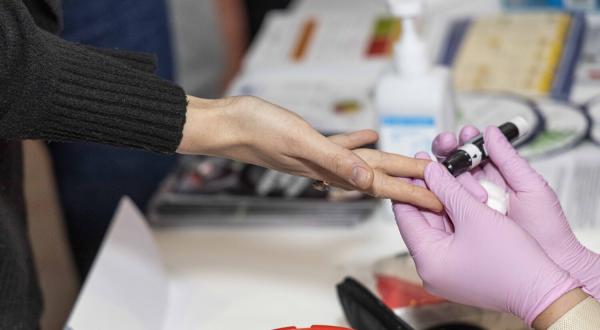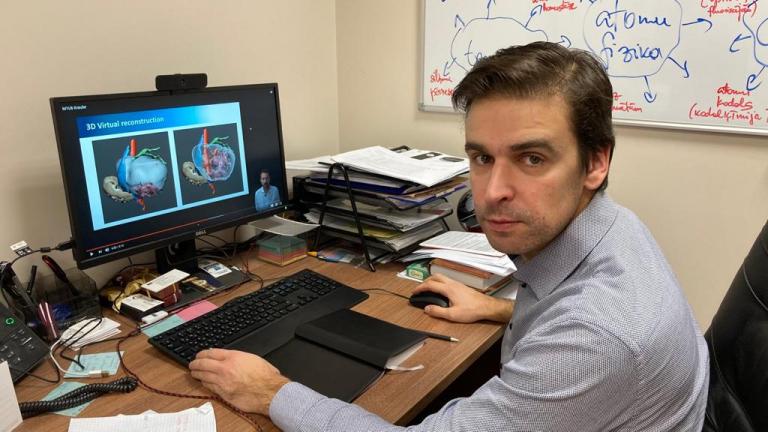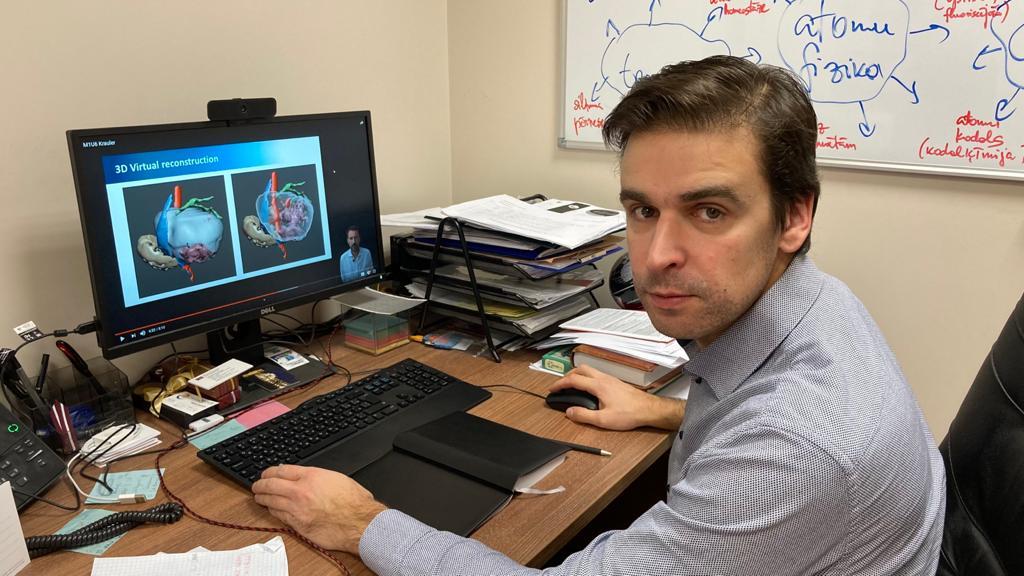Lecturers Expand Their Knowledge On The Medical Use of 3D Printing and Artificial Intelligence
From 5 October to 6 December, RSU lecturers acquired new knowledge and skills in 3D printing and the use of artificial intelligence in the fields of medicine and medical education. Along with peers from Germany, Spain, and Portugal, two RSU lecturers - Jevgēnijs Proskurins, Head of the Department of Physics, and Edgars Edelmers, Manager of the Laboratory of Anatomy - took part in the training programme.
Ieva Šlēziņa, Director of the RSU Medical Education Technology Centre, explains: ‘Coordinating international projects always requires energy and perseverance, especially in circumstances with constant change. When we prepared the application for the EIT Health project together with its lead partner from Spain over a year ago, part of the training was to take place in person at the RSU Medical Education Technology Centre (METC). Of course, adjustments had to be made due to the pandemic, so the course was implemented online. This ultimately opened up even more opportunities for eight weeks of face-to-face work with world-class experts.
Not only will the knowledge that our peers gain help improve RSU study courses, but it will also contribute to patient safety by promoting cooperation with medical institutions across Latvia. This is because anatomical 3D models of patient pathologies can help doctors prepare for complex surgical operations.’
Jevgēnijs Proskurins, Head of the RSU Department of Physics, shares his experience: ‘I am going to apply the knowledge and skills I have acquired to improve the Introduction to 3D Printing course in my department and to share the skills and knowledge with doctoral students and my colleagues. The training programme covered five modules on the use of medical imaging, anatomy, and medical images, image post-processing and 3D printing for healthcare purposes, AI and research imaging, quantitative imaging and radiomics. Each module contained theoretical classes, appropriate test assignments and homework. When these modules were completed there were online consultations by world-class professionals in the respective field – the experts came from the University of Heidelberg, the Hospital Sant Joan de Déu Barcelona, Philips Iberica, and the Universitat Politècnica de Catalunya, among others.’
According to Edelmers, Manager of the Laboratory of Anatomy, ‘It will definitely be interesting for our students to learn about the new possibilities that 3D technologies offer. We could potentially develop a joint project with specialists from Barcelona to create an online library of anatomical 3D models.’
During the course, representatives from each country organised separate webinars and shared their experience mon the opportunities provided by 3D technologies. Uldis Roze represented RSU. Roze is a graduate of the RSU Faculty of Medicine, and he demonstrated the possibilities of using 3D printing to create special microbiological media. The presentation received positive feedback from peers in other countries, leading to discussions on the development and use of the method in everyday work.
The training was organised within the EIT Health project, supporting the innovative EXPERT3D course: Comprehensive Transversal Programme in Medical Image Post Processing: 3D Printing and Artificial Intelligence.

Related news
 RSU Health Day attracts many first-time donors and large number of student research groupsFor RSU Employees, For Students
RSU Health Day attracts many first-time donors and large number of student research groupsFor RSU Employees, For Students




